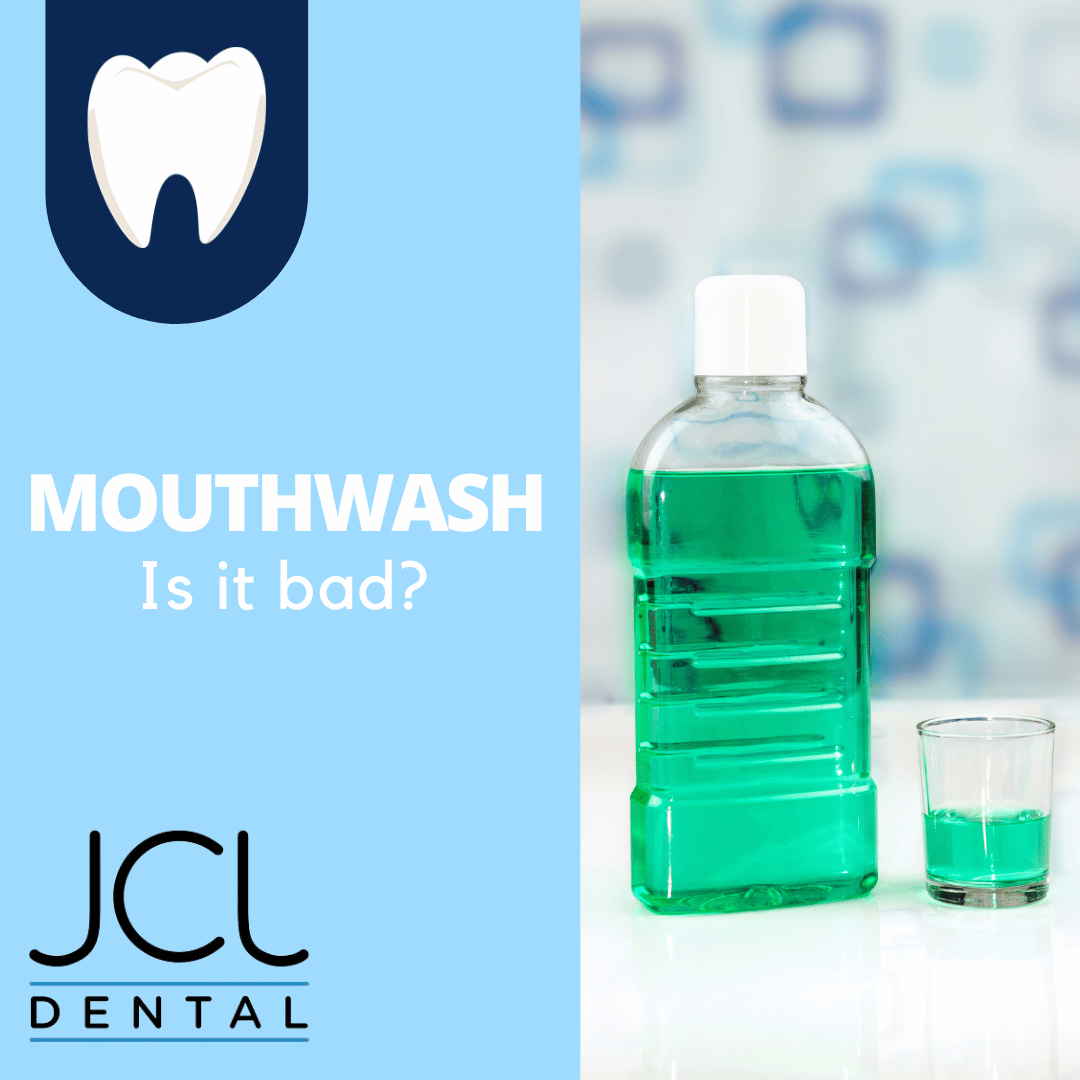Mouthwash: Is It Bad?
Mouthwash is an extremely common product that people often utilize as a part of their oral health routines. Is habitually swishing this refreshing liquid in our mouths truly the magical potion that it has always been thought to be? Dr. Lattinelli provides information about mouthwash that many of us may find surprising.

Gargling with mouthwash can almost be thought of as placing antibiotics in your mouth for no reason, resulting in oral microbiome getting compromised. We must have a sufficient supply of good bacteria since it serves to lower the risk for problems including cavities, gingivitis, and bad breath.
The use of mouthwash also interferes with the natural production of saliva and causes a decrease in this important secretion. Adequate saliva is beneficial for the process of remineralization which assists not only in the prevention of cavities but can reverse cavities as well. Saliva is vital for depositing important minerals like phosphorus, magnesium, and vitamin K2 onto the teeth. Mouthwash contains cationic compounds that neutralize the anionic compounds that toothpaste has deposited in order to kill germs. The reaction between the two different compounds creates drying of the mouth that even has the potential to create oral ulcers.
Believe it or not, mouthwash can actually encourage cavities to form. Since oral microbiome fosters the natural remineralization of teeth, if all the bacteria in your mouth gets destroyed, you also get rid of the good bacteria that help to reverse cavities.
Although traditional mouthwash provides an invigorating sensation, it does not really combat and remedy bad breath. The alcohol in mouthwash dries out your mouth and perpetuates the issue instead.
There could be a possible connection between regular use of mouthwash and oral cancer. Without definitive proof that alcohol-containing mouthwashes may heighten the risk of developing oral cancer, there are indicators that point toward a correlation. This thought is based on the idea that smokers are likely to gargle more often with mouthwash than their non-smoking counterparts to mask the unpleasant smell.
The majority of mouthwashes that are available on the market usually burn when in contact with the mouth. This phenomenon occurs for two reasons. First, it happens as a result of certain ingredients that cause minor irritation of the skin. Eucalyptol, menthol, thymol, and methyl salicylate are common culprits of the fiery sensation. The second explanation is that because mouthwash is not able to completely kill all the germs, the burning components melt into the teeth, gums, and tongue.
Dr. Lattinelli’s trusted dental practice offers a spectrum of services in order to accommodate all of his clients’ needs. Our contemporary and welcoming office is located at 121 East 60th Street in Manhattan. Kindly schedule an appointment with Dr. Lattinelli by calling (212) 752-7188.

